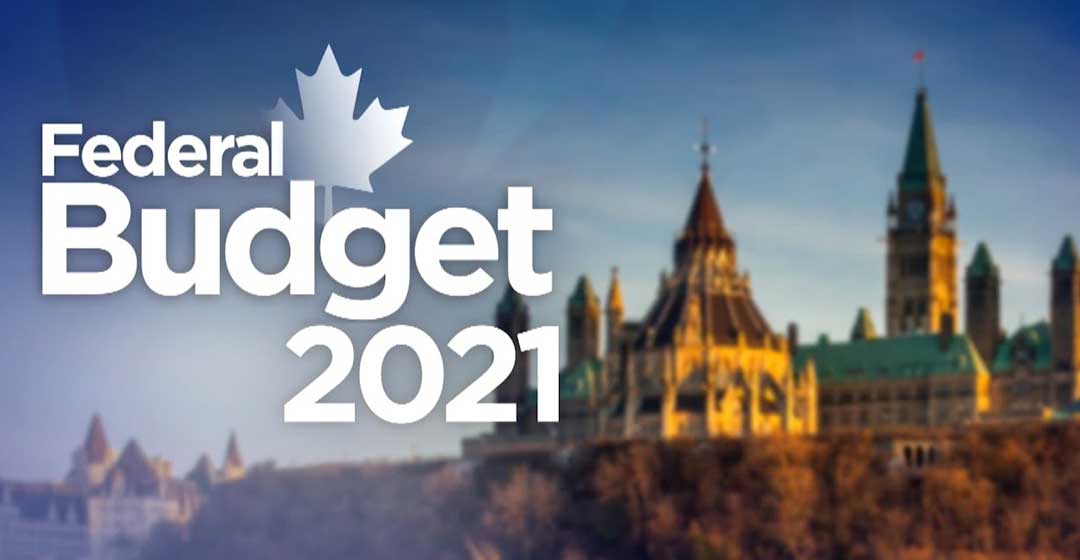
On April 19, 2021, Deputy Prime Minister and Finance Minister Chrystia Freeland tabled in the House of Commons the Liberal Government’s first federal budget in more than two years, A Recovery Plan for Jobs, Growth, and Resilience (Budget 2021). Budget 2021 contains tax measures that provide additional COVID-19 support to Canadian businesses, promote clean energy, introduce new sales and excise tax measures, limit interest deductibility and address certain cross-border financing structures. These measures include:
COVID-19 Support and Recovery
- Extending existing COVID-19 emergency business supports and introducing a new Canada Recovery Hiring Program;
- Promoting immediate expensing of the acquisition of certain depreciable capital property (up to $1.5 million per year) by Canadian-controlled private corporations;
Clean Energy Investment
- Amending the list of eligible Class 43.1 and 43.2 clean energy equipment;
- Offering limited corporate income tax rate reductions for manufacturers of zero-emission technologies;
- Creating a new input tax credit for certain capital investments in carbon capture, utilization, and storage projects;
International Tax/General Corporate Tax
- Introducing new rules to limit the amount of net interest expense that may be deducted in computing Canadian taxable income and to limit the deduction of amounts paid or received under hybrid mismatch arrangements;
- Proposals to overhaul Canada’s transfer pricing rules following the Federal Court of Appeal decision in Her Majesty The Queen v Cameco Corporation(2020 FCA 112);
- Committing to continuing the Government’s work to modernize the general anti-avoidance rule (GAAR);
Sales/Excise Taxes
- Committing to creating an interim digital services tax applicable to digital services businesses and to enact previously announced GST/HST measures applicable to e-commerce platforms;
- Introducing an excise duty on vaping products and a luxury tax on personal use vehicles, boats, and planes;
Compliance/Audit Powers
- Restructuring Canada’s transaction disclosure rules, introducing a new class of “notifiable transactions,” and requiring disclosure of uncertain tax positions; and
- Strengthening the CRA’s audit authority to compel persons to answer all proper questions for any purposes related to the administration or enforcement of, amongst other statutes, the Income Tax Act(Canada) and the Excise Tax Act(Canada).
Source: McCarthy
Newsletters
e-Newsletter – January 2018
NewslettersEvents & SponsorshipArticles & Publications
Events & Sponsorship
No Results Found
The page you requested could not be found. Try refining your search, or use the navigation above to locate the post.
Articles & Publications
Moving to the U.S. for more affordable Real Estate
Moving to the U.S. for more affordable Real Estate? Home prices have run-up in the U.S. but are mostly more affordable than major Canadian markets. Like many real estate markets worldwide, U.S. home prices have run up during the pandemic to the point of some saying...
New Goods and Services/Harmonized Sales Tax Rules
This article intends to illustrate how the new proposed Goods and Services/Harmonized Sales Tax (GST/HST) rules are to apply to the sale of goods made on July 1, 2021, or later, by a retailer that is a non-resident of Canada and not registered for GST/HST purposes,...
When withdrawing funds early from your RRSP makes sense
Most Canadians spend their working lives socking away as much money as they can in their registered retirement savings plans (RRSPs) — often feeling guilty if they’re not maxing out the contribution limits set by the federal government. Once retirement rolls around,...
Understanding the CRA Notice of Assessment
Understanding the CRA Notice of Assessment How to object if you think the CRA is wrong Most of us have received our Notice of Assessment from the CRA for our 2020 tax returns. Mostly it is pretty much as you expected – a refund or no balance owing. But sometimes, the...
A Guide to Bank Reconciliations
One of the most overlooked steps in the accounting process is completing a bank reconciliation. We'll take you step-by-step through the process of completing bank reconciliations for your business. In this day of electronic banking, many people believe completing a...